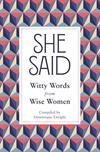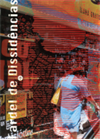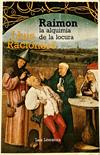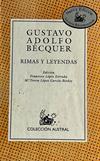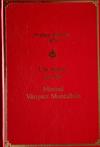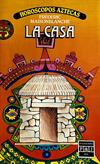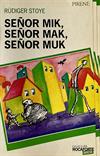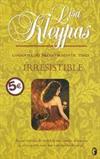
A History of the World in 10 1/2 chapters
3 journalers for this copy...
Book Description:
A revisionist view of Noah's Ark, told by the stowaway woodworm. A chilling account of terrorists hijacking a cruise ship. A court case in 16th-century France in which the woodworm stand accused. A desperate woman's attempt to escape radioactive fallout on a raft. An acute analysis of Gericault's "Scene of Shipwreck." The search of a 19th-century Englishwoman and of a contemporary American astronaut for Noah's Ark. An actor's increasingly desperate letters to his silent lover. A thoughtful meditation on the novelist's responsibility regarding love. These and other stories make up Barnes's witty and sometimes acerbic retelling of the history of the world. The stories are connected, if only tangentially, which is precisely Barnes's point: historians may tell us that "there was a pattern," but history is "just voices echoing in the dark; . . . strange links, impertinent connections." Fascinating reading from the author of Flaubert's Parrot , but not for those wanting conventional plot.
A revisionist view of Noah's Ark, told by the stowaway woodworm. A chilling account of terrorists hijacking a cruise ship. A court case in 16th-century France in which the woodworm stand accused. A desperate woman's attempt to escape radioactive fallout on a raft. An acute analysis of Gericault's "Scene of Shipwreck." The search of a 19th-century Englishwoman and of a contemporary American astronaut for Noah's Ark. An actor's increasingly desperate letters to his silent lover. A thoughtful meditation on the novelist's responsibility regarding love. These and other stories make up Barnes's witty and sometimes acerbic retelling of the history of the world. The stories are connected, if only tangentially, which is precisely Barnes's point: historians may tell us that "there was a pattern," but history is "just voices echoing in the dark; . . . strange links, impertinent connections." Fascinating reading from the author of Flaubert's Parrot , but not for those wanting conventional plot.
Promised to jamesmum!
Journal Entry 3 by Amorae at Fellow BookCrosser in By mail / post / courier, By Mail/Post/Courier -- Controlled Releases on Thursday, January 22, 2004
Released on Thursday, January 22, 2004 at Fellow BookCrosser in Postal release, Postal Release Controlled Releases.
Book is on its way to jamesmum. Enjoy! :)
Book is on its way to jamesmum. Enjoy! :)
Just arrived in the mail - thanks! Will post notes after I've read it.
ADDED: Just finished reading it - I liked it a lot, but it's a bit different. Hard to desribe, but enjoyable to read. On its way to Kayote from book relay.
ADDED: Just finished reading it - I liked it a lot, but it's a bit different. Hard to desribe, but enjoyable to read. On its way to Kayote from book relay.
Arrived. Onto my TBR pile. I expect to get to it in April--after the convention release challenges. :)
Ok, I got to it early. It was there when I needed something to toss in a bag to take with me travelling. It was nice to be able to read a chapter then put it down with no regrets, because what I had been reading was done, and something new was next.
This is an interesting setup of a book. I guess it's best described as a collection of short stories--but some are more chapters/vigenettes than stories. Each chapter is distinct from the others, and can be read on its own, but there are threads that run throughout the book. Some are just common themes that appear, to a greater or lesser extent, in multiple chapters (Noah, woodworms for example), while others are direct references from one chapter to another (the skeleton in Chapter 9, for example). You do not need to catch the reference to read the chapter--but the threads and references make the ten distinct and separate (and named) chapters into a book, rather than just a collection of stories/articles.
The Stowaway (on Noah's ark) is an intriquing alternative on the traditional myth. I like the idea, but I haven't decided if I like the actual instance of it.
The Visitors is disturbing. I think it is the least connected chapter, but is still disconcerting at how true it could be.
The Wars of Religion is apparently based on an actual court case--with woodworms as the defendant. Fascinating, mainly because it is at least somewhat based in fact.
The Survivor is also very strange, and disconnected from the rest. It leaves you unsure of who to believe, or even who you want to believe. Normally I don't like endings like that, but this one (like the well known Lady and the Tiger) is well done. Is the cat actually plump and pregant on an island, or was it skinny and yowling when recused from the ship?
Shipwreck comes in two parts. The first part was so-so--it told the story of a shipwreck that apparently did happen. The second part, investigating how tragedy becomes art, is an essay that all artists should read, and so should everyone else. A poke into the psyche of man.
The Mountain poses the interesting quandry: "Everything has two explanations--one scientific, one faith. In every case you must choose which to believe". That comment makes the story worth reading, though I wasn't impressed beyond that.
Three Simple Stories--The first one, wasn't very memorable, but I did like the example of history repeating itself--first as a tragedy then as a farce, in the case of a Titanic survivor trying to slip in as an extra on a film about the Titanic--and getting caught. That wasn't more than an offhand comment, and the rest of the section I never found the point. The second story was an examination of Jonah--and suggests that myths don't explain the past, they prepare us for what will happen in the future. I liked how the tale/essay was told, and I liked the examination of myths from a new perspective. The third story was depressing, probably true, and I didn't really get much out of it other than it being depressing.
Upstream never did make much sense to me. The story told in the letters was a neat story with undertones to be seen if you want, or ignored if you don't (the best kind), but the story going on at the other end of the story I never quite figured out.
Parenthesis (the un-numbered 1/2 chapter) is a digression into love. I am currently reading a book on love (I don't have it handy for the BCID) so I thought it was a neat meshing of current books. It touches on honesty, and purantinism I liked the parenthentical comment: "And does history repeat itself, the first time as tragedy, the second as a farce? no, that's too grand, too considered a process. History just burps and we taste again that raw-onion sandwich it swallowed centuries ago." It is a circular style essay--starting in one concrete place, wandering very much into the abstract, then returning the reader to the concrete place before letting them go. The journey is worth it, even if you end up right where you started.
Project Arat didn't thrill me, though the attention to detail was clear and well done. Details were where they needed to be, and not where they didn't.
The Dream made a good ending. It's about heaven. And heaven is exactly what you want. But how long until this gets boring--what do you want, when do you want it, and after you have it....what next? It begins "I dreamt that I woke up..." and it ends the same way. Exactly the same, but with a completely new view of the exact same world.
I did not find the book particularly funny--there were some excellent lines, and the basis of some of the chapters is just inhernently amusing, but I would not put them as humor essays. They are stories and essays with a serious undertone, but often told in a light hearted setting. Some are not a light setting even, but the chapters do not always need humor, as the world needs a balance of chapters.
I cannot say all the chapters were great writing, and there are couple parts I'd probably skip if I read it again. But I think the book as a whole has a lot going for it. You can read it for entertainment, but I hope you think about some of the underlying issues it brings up as well. Though it politely lets you decide if you want to think about them or not--it's just telling stories with an occasional non-intrusive essay.
I am going to try and get a couple friends to read this book, but then it will be available.
This is an interesting setup of a book. I guess it's best described as a collection of short stories--but some are more chapters/vigenettes than stories. Each chapter is distinct from the others, and can be read on its own, but there are threads that run throughout the book. Some are just common themes that appear, to a greater or lesser extent, in multiple chapters (Noah, woodworms for example), while others are direct references from one chapter to another (the skeleton in Chapter 9, for example). You do not need to catch the reference to read the chapter--but the threads and references make the ten distinct and separate (and named) chapters into a book, rather than just a collection of stories/articles.
The Stowaway (on Noah's ark) is an intriquing alternative on the traditional myth. I like the idea, but I haven't decided if I like the actual instance of it.
The Visitors is disturbing. I think it is the least connected chapter, but is still disconcerting at how true it could be.
The Wars of Religion is apparently based on an actual court case--with woodworms as the defendant. Fascinating, mainly because it is at least somewhat based in fact.
The Survivor is also very strange, and disconnected from the rest. It leaves you unsure of who to believe, or even who you want to believe. Normally I don't like endings like that, but this one (like the well known Lady and the Tiger) is well done. Is the cat actually plump and pregant on an island, or was it skinny and yowling when recused from the ship?
Shipwreck comes in two parts. The first part was so-so--it told the story of a shipwreck that apparently did happen. The second part, investigating how tragedy becomes art, is an essay that all artists should read, and so should everyone else. A poke into the psyche of man.
The Mountain poses the interesting quandry: "Everything has two explanations--one scientific, one faith. In every case you must choose which to believe". That comment makes the story worth reading, though I wasn't impressed beyond that.
Three Simple Stories--The first one, wasn't very memorable, but I did like the example of history repeating itself--first as a tragedy then as a farce, in the case of a Titanic survivor trying to slip in as an extra on a film about the Titanic--and getting caught. That wasn't more than an offhand comment, and the rest of the section I never found the point. The second story was an examination of Jonah--and suggests that myths don't explain the past, they prepare us for what will happen in the future. I liked how the tale/essay was told, and I liked the examination of myths from a new perspective. The third story was depressing, probably true, and I didn't really get much out of it other than it being depressing.
Upstream never did make much sense to me. The story told in the letters was a neat story with undertones to be seen if you want, or ignored if you don't (the best kind), but the story going on at the other end of the story I never quite figured out.
Parenthesis (the un-numbered 1/2 chapter) is a digression into love. I am currently reading a book on love (I don't have it handy for the BCID) so I thought it was a neat meshing of current books. It touches on honesty, and purantinism I liked the parenthentical comment: "And does history repeat itself, the first time as tragedy, the second as a farce? no, that's too grand, too considered a process. History just burps and we taste again that raw-onion sandwich it swallowed centuries ago." It is a circular style essay--starting in one concrete place, wandering very much into the abstract, then returning the reader to the concrete place before letting them go. The journey is worth it, even if you end up right where you started.
Project Arat didn't thrill me, though the attention to detail was clear and well done. Details were where they needed to be, and not where they didn't.
The Dream made a good ending. It's about heaven. And heaven is exactly what you want. But how long until this gets boring--what do you want, when do you want it, and after you have it....what next? It begins "I dreamt that I woke up..." and it ends the same way. Exactly the same, but with a completely new view of the exact same world.
I did not find the book particularly funny--there were some excellent lines, and the basis of some of the chapters is just inhernently amusing, but I would not put them as humor essays. They are stories and essays with a serious undertone, but often told in a light hearted setting. Some are not a light setting even, but the chapters do not always need humor, as the world needs a balance of chapters.
I cannot say all the chapters were great writing, and there are couple parts I'd probably skip if I read it again. But I think the book as a whole has a lot going for it. You can read it for entertainment, but I hope you think about some of the underlying issues it brings up as well. Though it politely lets you decide if you want to think about them or not--it's just telling stories with an occasional non-intrusive essay.
I am going to try and get a couple friends to read this book, but then it will be available.
